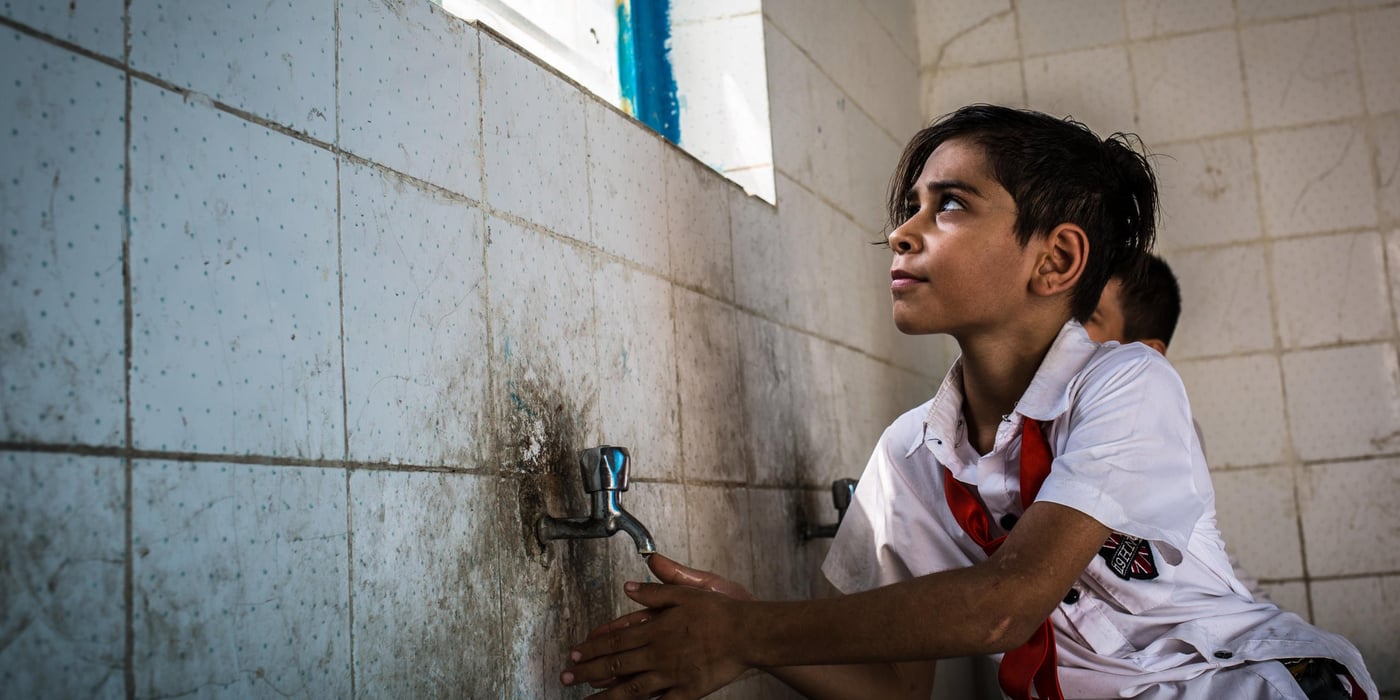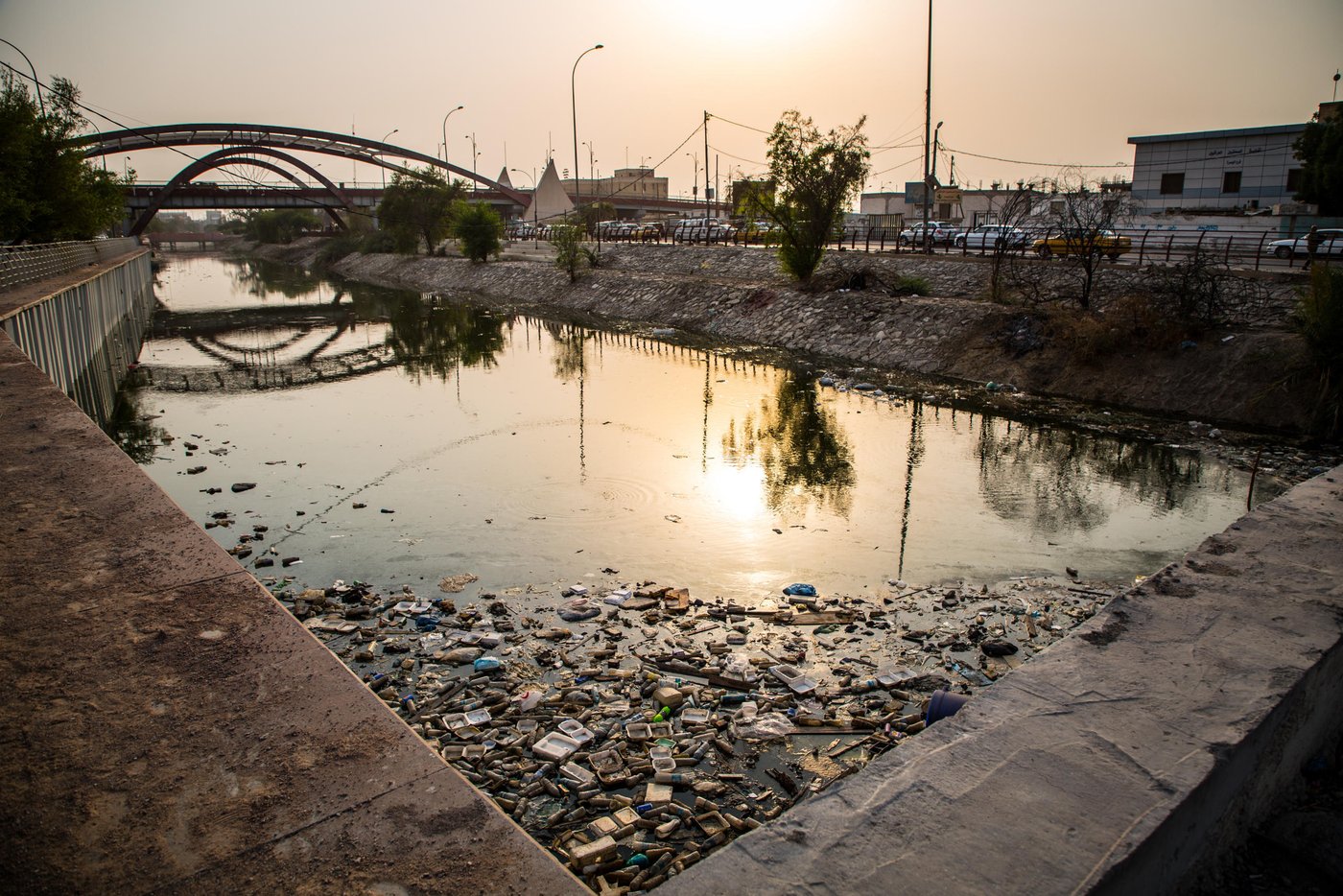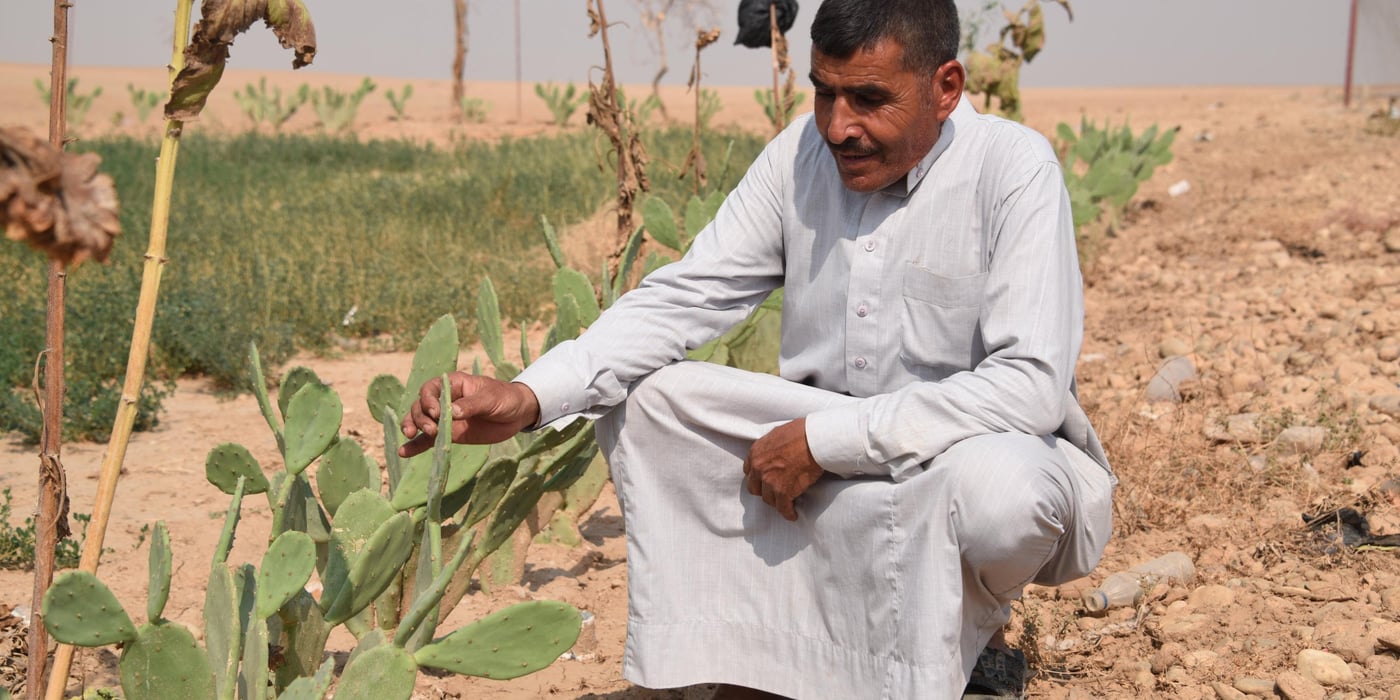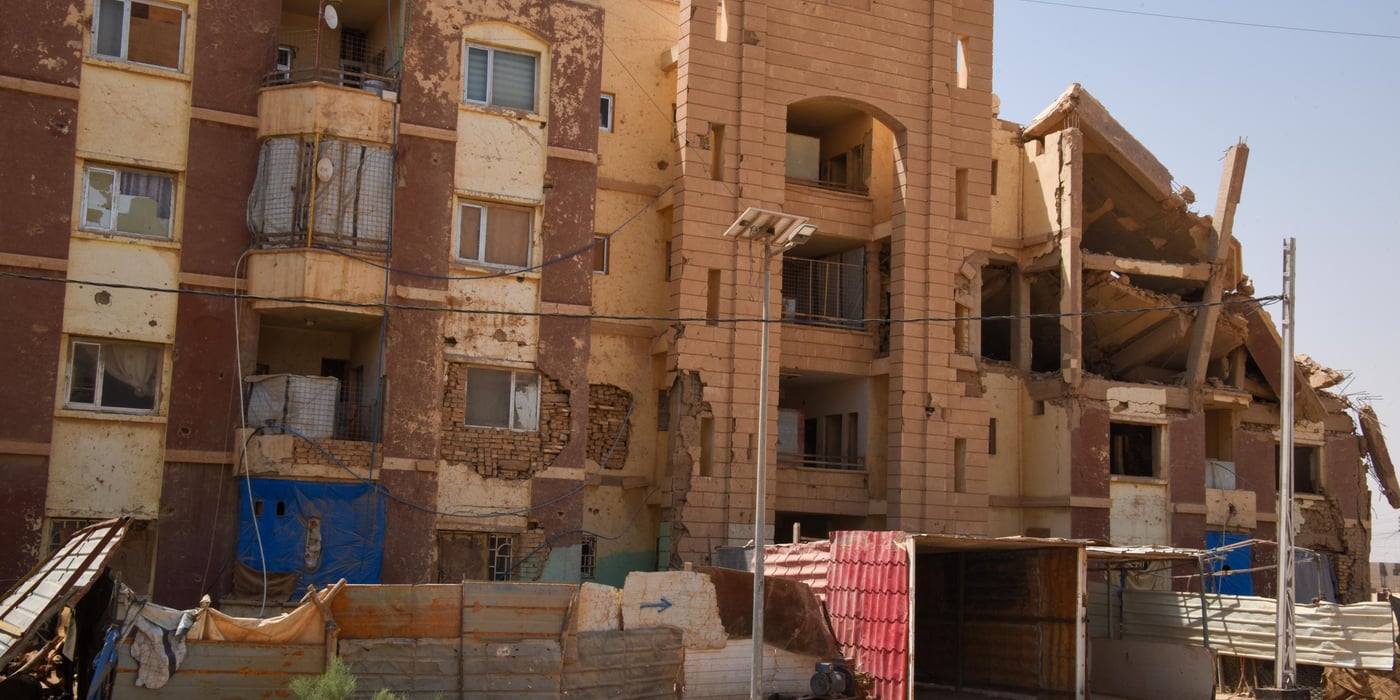
Teachers told NRC they are witnessing concerning numbers of children hospitalised since they returned to school, suffering from diarrhoea, vomiting, rashes and scabies.
“With classes just reopening after summer, more than 800 schools are now breeding grounds for an epidemic of water-borne diseases, including cholera, as temperatures drop in the coming weeks,” said NRC’s Country Director Wolfgang Gressmann. “We are extremely concerned that the deteriorating water and sanitation infrastructure of schools and the overcrowded classrooms will catapult the city into a veritable public health disaster.”
The water crisis in the city and the region has already led to more than 110,000 people poisoned over the last three months, according to the Iraqi High Commission for Human Rights. NRC is working with some of the worst affected schools to ensure children get safe, drinkable water, but the needs are overwhelming for local authorities and aid agencies.
“We urge donor governments to fund the response to this unfolding disaster before it’s too late,” Gressmann said. “As one primary school teacher told us: Everyone is at risk now.”
The water shortages in rural areas in Southern governorates of Iraq have also forced thousands to leave their homes – at least 3,780 in August alone. Residents told NRC that access to clean water was a key source of tension and even armed violence in the community.
Photos and B-roll can be downloaded for free use and distribution
For more information, please contact:
|
Erbil |
Tom Peyre-Costa, Media Coordinator |
+964 751 182 3882 |
|
|
Amman |
Karl Schembri, Regional Media Adviser |
+962 7902 20159 |





